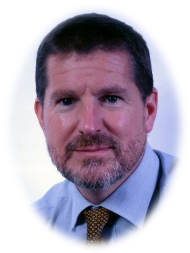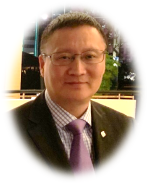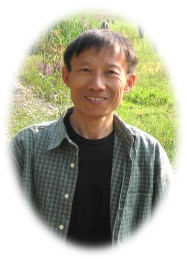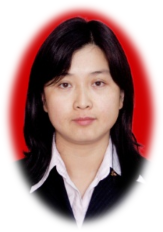
Klaus Schilling
Professor, Director
Center for Telematics (ZfT), Würzburg, Germany
Title: Internet of Space: Networks of Small Satellites for Global Telecommunications
Abstract:
Internet of Things raises challenging demands for connecting sensors and actuators via com-munication links, as well as for networked control. For remote areas, links via satellites complement the terrestrial infrastructure based on fiber and radio. In order to reduce latencies, satellite networks in low Earth orbits (LEO) are currently initiated. While OneWeb and Starlink already placed first satellites in orbit, still further mega-constellations are announced. Here specifically low bandwidth applications for industry 4.0, logistics, and emergency situations are addressed, which are cost-efficiently implemented by very small satellites at a mass of a few kg.
The University Würzburg's Experimental satellite (UWE) program used a step by step approach to develop and test in orbit the crucial technologies for formation flying at minimum mass. UWE-1 (about 1 kg) was launched 2005 as the first German pico-satellite and already addressed “internet in space”. Meanwhile further key technologies related to communication, attitude and orbit determination and control, were successfully demonstrated in orbit. For the on-board data handling system, a longtime robust performance was achieved by an advanced fault detection, isolation and recovery system software. The four pico-satellite formation flying mission “NetSat” will be launched begin of 2020 to demonstrate cooperative system behavior with respect to telecommunication applications. In order to achieve secure communication, the focus of the QUBE mission is on quantum key distribution via small satellites.
In Earth observation, small satellites complement terrestrial sensor networks by nodes in orbit. Examples under development at ZfT include “TOM – Telematics earth Observation Mission”, a 3 pico-satellite formation for photogrammetric observations, being part of the Telematics International Mission (TIM), where partners from 5 continents contribute CubeSats for 3D Earth observation. The ClimaCT mission characterizes clouds by tomographic observations of 10 cooperating pico-satellites. Also teams of traditional satellites with distributed sensor networks of detectors on small satellites will be discussed in “Internet of Space”.
Biography:
Prof. Dr. Schilling had in space industry responsibility in Earth observation and interplanetary satellites (such as HUYGENS to the Saturnian moon Titan and ROSETTA for exploration of comets, where adaptive control technologies assisted handling of uncertainties), before he was appointed professor and chair for Robotics and Telematics at University Würzburg. In parallel he is president of the research company „Center for Telematics (ZfT)“. His team built the first German pico-satellite UWE-1, launched 2005 to optimize Internet in space. He published more than 350 papers and received several awards, including the Walter-Reis-Award for Robotic Innovations 2008 (for research in mobile robotics) and 2012 (for medical robotics), as well as from the European Research Council an ERC Advanced Grant 2012 and an ERC Synergy Grant 2018 for research on networked distributed satellite systems. He was Consulting Professor at Stanford University 2002-2006 and is full member of the International Academy of Astronautics.
In international professional societies he served in IEEE as chair of „TC on Networked Robotics“ and in IFAC (International Federation on Automatic Control) as Coordinating Chair for the area “Computers & Control” after having been TC chair for “Telematics: Control via Communication Networks” and for “Aerospace”.

Andrew Kemp
Professor
University of Leeds, UK
Title: The Internet of Things Paradigm
Abstract:
The Internet of Things, or IoT, is a system of interrelated computing devices, mechanical and digital machines, objects, animals or people that are provided with unique identifiers (UIDs) and the ability to transfer data over a network without requiring human-to-human or human-to-computer interaction. Its application range from smart homes to smart cities, and from agricultural to medical applications. A major concern with the current IoT industry is the lack of a universal standardisation body. Additionally, security (or the lack of) of the IoT devices renders these ‘things’ vulnerable to hacks and attacks. This presentation will cover the various applications, standardisation and security aspects of IoT.
Biography:
Prof A. H. Kemp is a Director of the SWJTU-Leeds Joint School in the Electronic and Electrical Engineering School at the University of Leeds, UK.
Andrew received a BSc (hons) from the University of York, and PhD from the University of Hull, UK. His doctoral studies investigated the use of complementary sequences in multi-functional architectures for use in CDMA systems. Technology adopted in 3G systems. He spent several years working in Africa assisting in Seismic exploration and worked at the University of Bradford as a research assistant investigating the use of Blum, Blum and Shub sequences for cryptographically secure 3G systems. He has been at the University of Leeds since 1998 where he led development of wireless fieldbus systems for industrial sites and development of ranging engines in WSN chip sets. Andrew has over 100 scientific papers and book chapters published. His research interests are in IoT, WSN, especially related to localization, routing and also multipath propagation studies to assist system development, cross-layer optimisation and wireless broadband connection to computer networks incorporating quality of service provision. Prof Kemp is part of the highly successful School of Electronic and Electrical Engineering at the University of Leeds and for E&EE is leading the Joint School between SWJTU and University of Leeds in Chengdu, PRC. He is a Fellow of the Higher Education Academy, a Fellow of the Institute of Engineering and Technology, a Senior Member of the Institute of Electrical and Electronic Engineering, and he is a Chartered Engineer.

Yiqing Ni
Chair Professor, Director
Smart Structures and Rail Transit at The Hong Kong Polytechnic University, Hong Kong, China
Hong Kong Branch of National Engineering Research Center on Rail Transit Electrification and Automation
Title: Intelligentizing Rail Transit by Sensing and Machine Learning
Abstract:
With the commissioning of Hong Kong High-Speed Rail (HSR) Section on 22 September 2018, Hong Kong officially joins the national HSR network and is conveniently connected to the major Mainland cities. The fast development of HSR network in China is linked up with unprecedented challenges related to safety, ride comfort, efficiency, environment, energy-saving and cost-effectiveness. With the urgent need for innovative solutions to newly-emerging challenges, the railway industry is undergoing a revolutionary advance from traditional rail system to next generation smart rail systems. This presentation outlines some critical issues concerning the development of smart rail system, including advanced sensing, artificial intelligence (AI), internet of things (IoT), big data analytics, cloud computing, energy-harvesting, and self-powered control. As an important branch of artificial intelligence (AI), machine learning algorithms in application to handling online and onboard sensing data for real-time operation monitoring, defect detection, and health assessment of Metro, HSR and Maglev rail systems are in particular addressed.
Biography:
Dr. Yi-Qing Ni is a Chair Professor of Smart Structures and Rail Transit at The Hong Kong Polytechnic University, Hong Kong, China and the Director of Hong Kong Branch of National Engineering Research Center on Rail Transit Electrification and Automation. His research areas cover structural health monitoring, smart materials and structures, and monitoring and control in rail engineering. Professor Ni has published more than 190 SCI-cited journal papers with an H-index of 38 in Web of Science Core Collection (an H-index of 50 in Google Scholar), and over 310 international conference papers. He received the 2017 “SHM Person of the Year Award” during the 11th International Workshop on Structural Health Monitoring held at Stanford University in September 2017. He is a Vice President of International Society for Structural Health Monitoring of Intelligent Infrastructure (ISHMII), and a Fellow of Hong Kong Institution of Engineers (HKIE). He is currently a Consulting Professor of Southwest Jiaotong University, and a Guest Professor of Zhejiang University and Shenzhen University.

Jie Chen
Chair Professor
City University of Hong Kong, China
Title: From Bode to Shannon: Fundamental Limitations and Limits of Feedback Revisited in an Information Age
Abstract:
Bode integral relations and Shannon capacity theorems are pillars of feedback and information theories, and they laid the very foundation for the design of control systems and communication systems, respectively. As today’s technological world is increasingly more information-rich and performance-driven, there has been growing recognition that control and communication, the two cornerstones of modern technologies, may and should be integrated ever more closely, and that the design of new engineering systems and networks can benefit from the fusion of control and communication theories. Relating to my own experiences and viewpoints, in this talk I shall present a control theorist’s perspective into this intriguing area of scientific inquiry, from the early triumph of feedback theory to the latest findings on networked control. The talk will commence with a summary tutorial of the classical and contemporary results in control performance limitation studies. This will then usher in the latest developments in networked control, where information constraints and information-theoretic measures play a crucial role. A central and unifying theme throughout the talk is the fundamental limitations and limits of control, under perfect and limited information feedback.
Biography:
Jie Chen is a Chair Professor in the Department of Electronic Engineering, City University of Hong Kong, Hong Kong, China. He received the B.S. degree in aerospace engineering from Northwestern Polytechnic University, Xian, China in 1982, the M.S.E. degree in electrical engineering, the M.A. degree in mathematics, and the Ph.D. degree in electrical engineering, all from The University of Michigan, Ann Arbor, Michigan, in 1985, 1987, and 1990, respectively.
Prior to joining City University, he was with School of Aerospace Engineering and School of Electrical and Computer Engineering, Georgia Institute of Technology, Atlanta, Georgia from 1990 to 1993, and with University of California, Riverside, California from 1994 to 2014, where he was a Professor and served as Professor and Chair for the Department of Electrical Engineering. His main research interests are in the areas of linear multivariable systems theory, system identification, robust control, optimization, time-delay systems, networked control, and multi-agent systems. He is the author of several books, on subjects ranging from system identification to time delay systems, and to information-theoretic control and fundamental control limitations.
An elected Fellow of IEEE, Fellow of AAAS, Fellow of IFAC and a Yangtze Scholar/Chair Professor of China, Dr. Chen was a recipient of 1996 US National Science Foundation CAREER Award, 2004 SICE International Award, and 2006 Natural Science Foundation of China Outstanding Overseas Young Scholar Award. He was an IEEE Control Systems Society (CSS) Distinguished Lecturer and served on the IEEE CSS Board of Governors and as the IEEE CSS Chapter Activities Chair. He also served on a number of journal editorial boards, as an Associate Editor and a Guest Editor for the IEEE Transactions on Automatic Control, a Guest Editor for IEEE Control Systems Magazine, an Associate Editor for Automatica, and the founding Editor-in-Chief for Journal of Control Science and Engineering. He presently serves as an Associate Editor for SIAM Journal on Control and Optimization, and for International Journal of Robust and Nonlinear Control. Moreover, he routinely serves on program and organizing committees of international conferences, most recently as the General Chair of the 2019 IEEE Conference on Control Technology and Applications.

Na Dong
General Manager
DEC Chengdu Intelligent Technology Co., LTD, Chengdu, China
Title: Practice of DEC Intelligent Manufacturing Projects
Abstract:
Dongfang Electric Corporation (DEC) is one of the backbone enterprise groups in China. DEC has blossomed into one of the world largest power generating equipment manufacturers and international project contractors. Presently, DEC has outnumbered 500GW while yearly output topping the world for 14 years. As the national strategic base for heavy-duty machinery and equipment, DEC has possessed comprehensive technical R&D capabilities. DEC is carrying out digital transformation. This report describes the practical experience of intelligent manufacturing, digital workshop, intelligent energy and intelligent design.
Biography:
Na Dong received her Ph.D degree from Haerbin Institute of Technology. She is the general manager of DEC Chengdu Intelligent Technology Co., LTD and the director of Sichuan intelligent Manufacturing Innovation Center. An International Welding Engineer, Dr. Dong’s research address intelligent manufacturing, robotic automatic welding and special robot. She has been leader of more than 20 key projects, ranging from technology research to industrial application, including special robots for nuclear waste disposal, digital workshop and robotic welding production line. The project results promote greatly the application of DEC intelligent manufacturing technology.